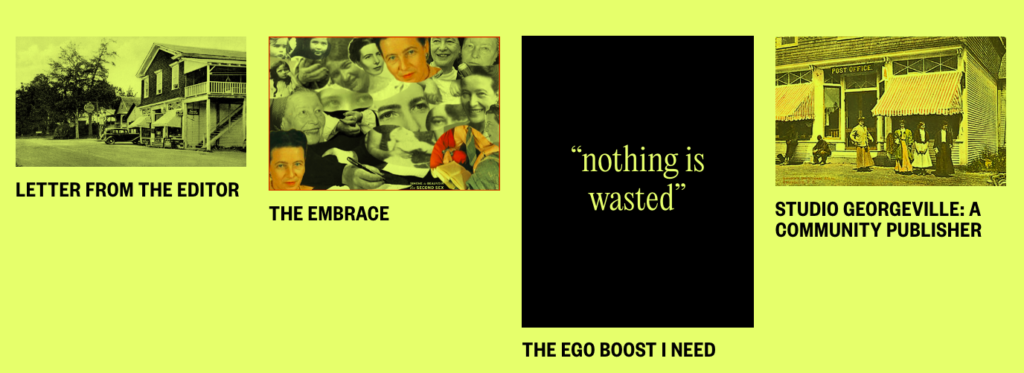Montreal’s latest literary publication, Font, spotlights the work of marginalized and minority writers across Quebec
by Misha Khan
Multimedia literary magazine Font launched in November 2021 as a publication spotlighting the work of marginalized English-language writers across Quebec. Its mission is to serve Quebec’s literary community by opening the doors of opportunity not only to new and early-career writers, but also to performers, storytellers, translators, publishers, arts workers, and other leaders working in English and other minority languages.
“It was meant to showcase, promote, and cater to the work of marginalized writers across Quebec. That was the original idea, and that’s exactly what it is today,” says Linda Leith, publisher of Font and Linda Leith Publishing (LLP).
With the online publication taking a multimedia approach, it creates a fresh landscape that reflects the diversity of literature, changing the way literary work is both defined and consumed. In Linda’s view, literary artists who continue to emerge are very much products of a digital world. “They don’t only think in terms of the printed word or words on a screen, but all kinds of other forms, which can go from more traditional storytelling to music and song, song lyrics, and multimedia.”

“We were also looking at people who may be coming from cultures where the oral tradition is much stronger and it’s not so much about the written word,” Font editor Rachel McCrum adds. “We’re looking at spoken word, performance poetry, and oral storytelling [as well]. This is literature. This is everything that it can be. It’s still words and text to a degree, but we are redefining it and it’s so exciting to be able to represent that within the magazine.” For both Leith and McCrum, broadening the scope of literary work showcased is essential in developing a healthy literary ecosystem.
This willingness to expand the publication by using various forms of media and connecting writers from different marginalized communities with one another sets the stage to expose new artists that otherwise may have never found a home. “When there is a multiplicity of platforms, we can create paid and professional opportunities for as many [people] as possible,” McCrum explains, “because that’s what it takes to grow a writing culture in a healthy literary ecosystem.”
But the goals of Font don’t just end within the magazine itself. “In the process of discovering writers,” Leith notes, “it is possible for a publisher of books, such as LLP, to want to publish them in book form. We want to lead to that discovery in the hopes that authors get scouted, and some of their books get published.”
Montreal-based design company House9 played a big role in aligning Font’s design with its mission. In its execution, there was an emphasis on recreating the distraction-free mode that print offers. “There’s this sort of fragmented quality of attention that comes with consuming media on a digital platform,” McCrum says. “When you’re reading a magazine, you can read it from cover to cover. There’s nothing to distract you. There are no links, no ads, nothing to go outside of it. Creating that sort of space on an online platform is challenging, but that’s what House9 was able to help us do.”

In the face of an ongoing pandemic, it’s important for us to look into new tools and ways of disseminating art and creativity to push boundaries. “The staff at House9 are visual people and graphic artists,” Leith adds, “but they took words very seriously in translating this publication into digital form.”
Both Leith and McCrum emphasize the beauty of the publication’s open-development process. “There’s a spirit of exploration and questioning with what we’re doing even now,” McCrum notes. “We’re always questioning the process.”
“Our current focus that we’ll continue to explore as Font grows,” Leith adds, “is that it is about developing not only new writers, but also new editors and publishers, which is a part of what a vibrant literary community needs.” Though the gaps and systemic barriers in involvement and accessibility within the literary community are still ever-present, Font pushes back and is ready to shift the paradigm, forming something else altogether. A new, healthy, and inclusive literary community may just be on the horizon.
Be sure to check out the third issue of Font, out in February 2022, which will focus on an intergenerational group in Lower St. Lawrence who worked with spoken word artist Dona Nham on “Spoken Ancestries,” a Quebec Writers’ Federation StoryScaping workshop.
Misha Khan is a freelance writer and activist with years of experience working in grassroots organizations. She has a passion for amplifying underrepresented voices and exploring topics ranging from mental health, literacy, and feminist studies in her writing.
Illustration by Todd Stewart
